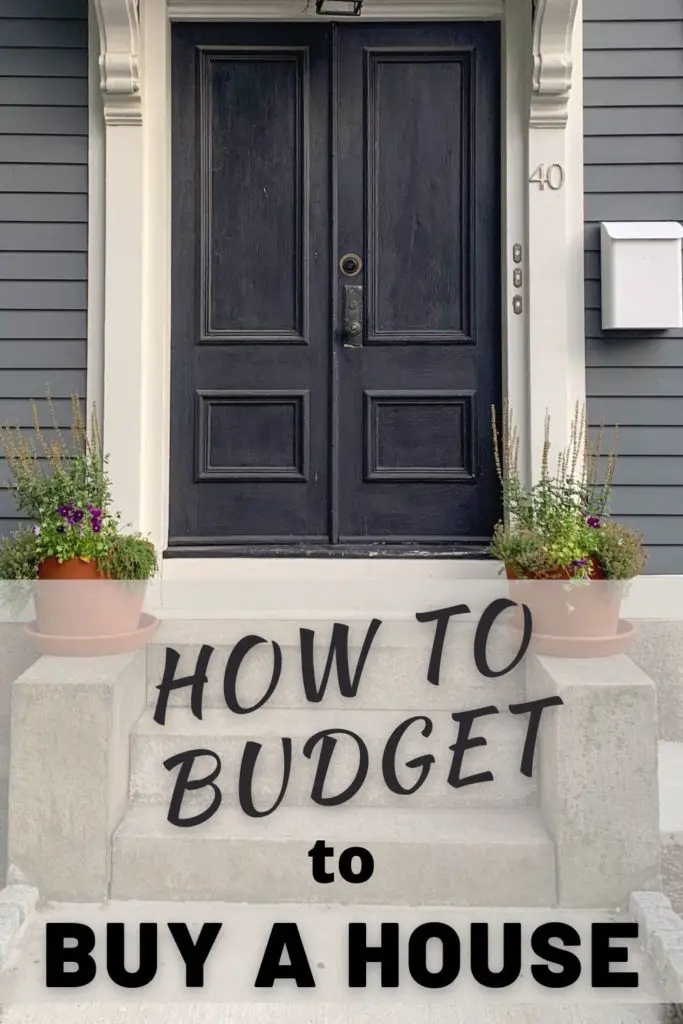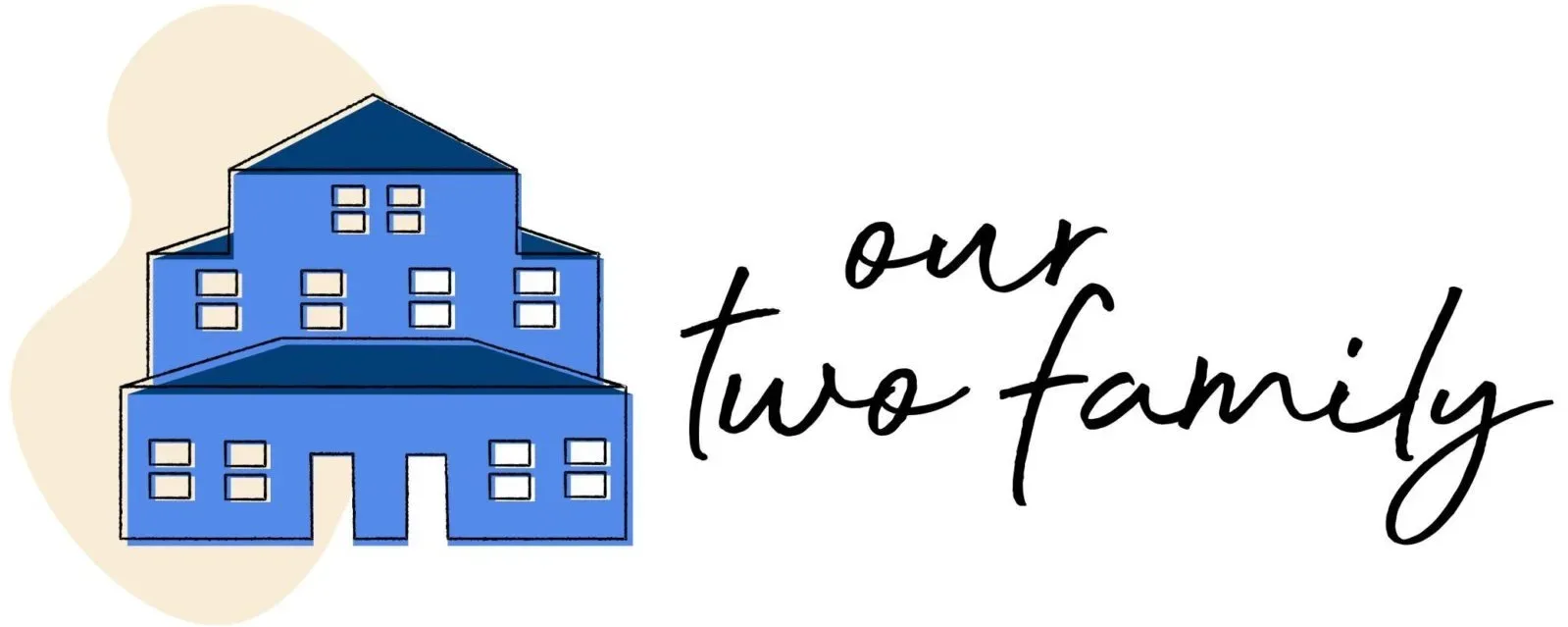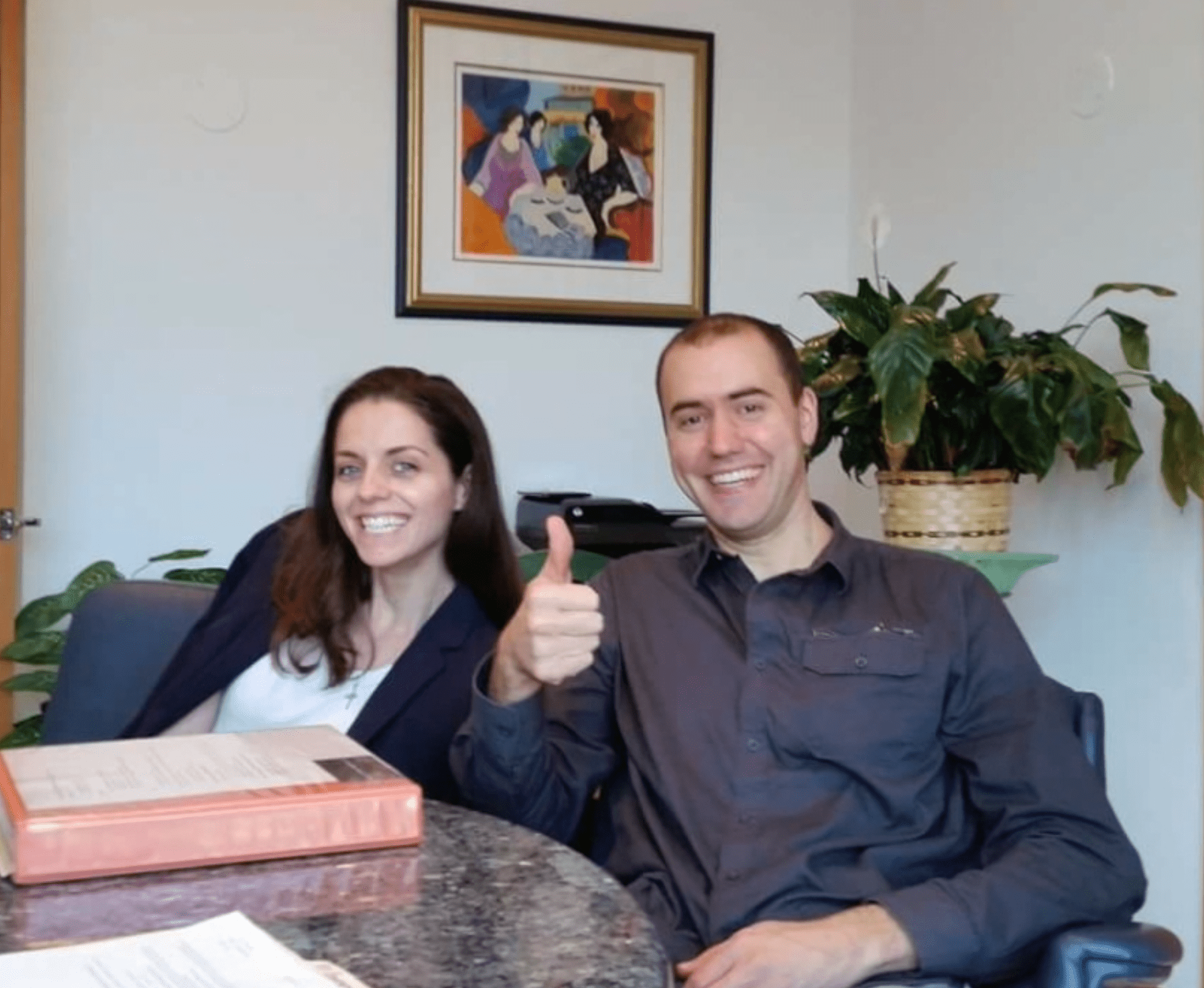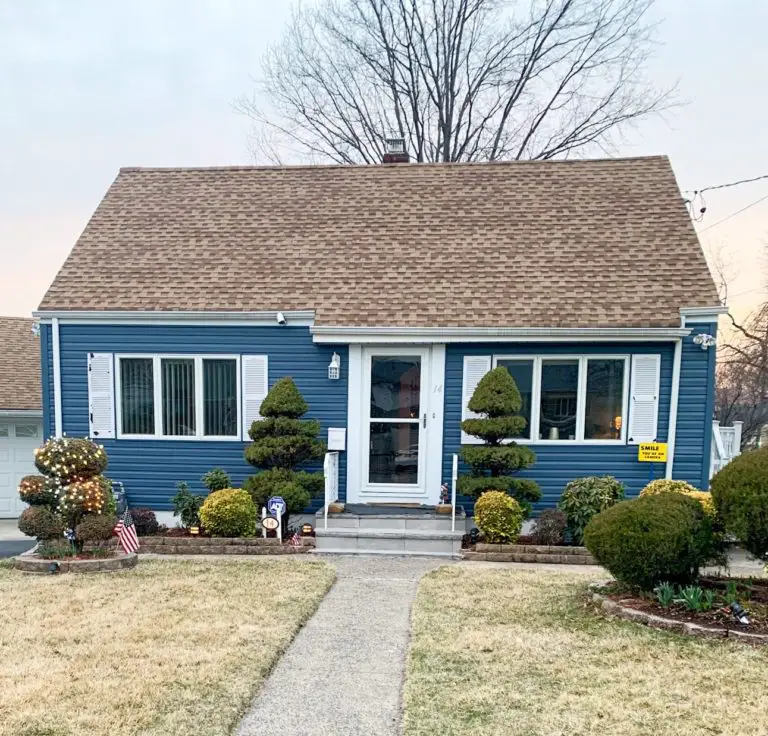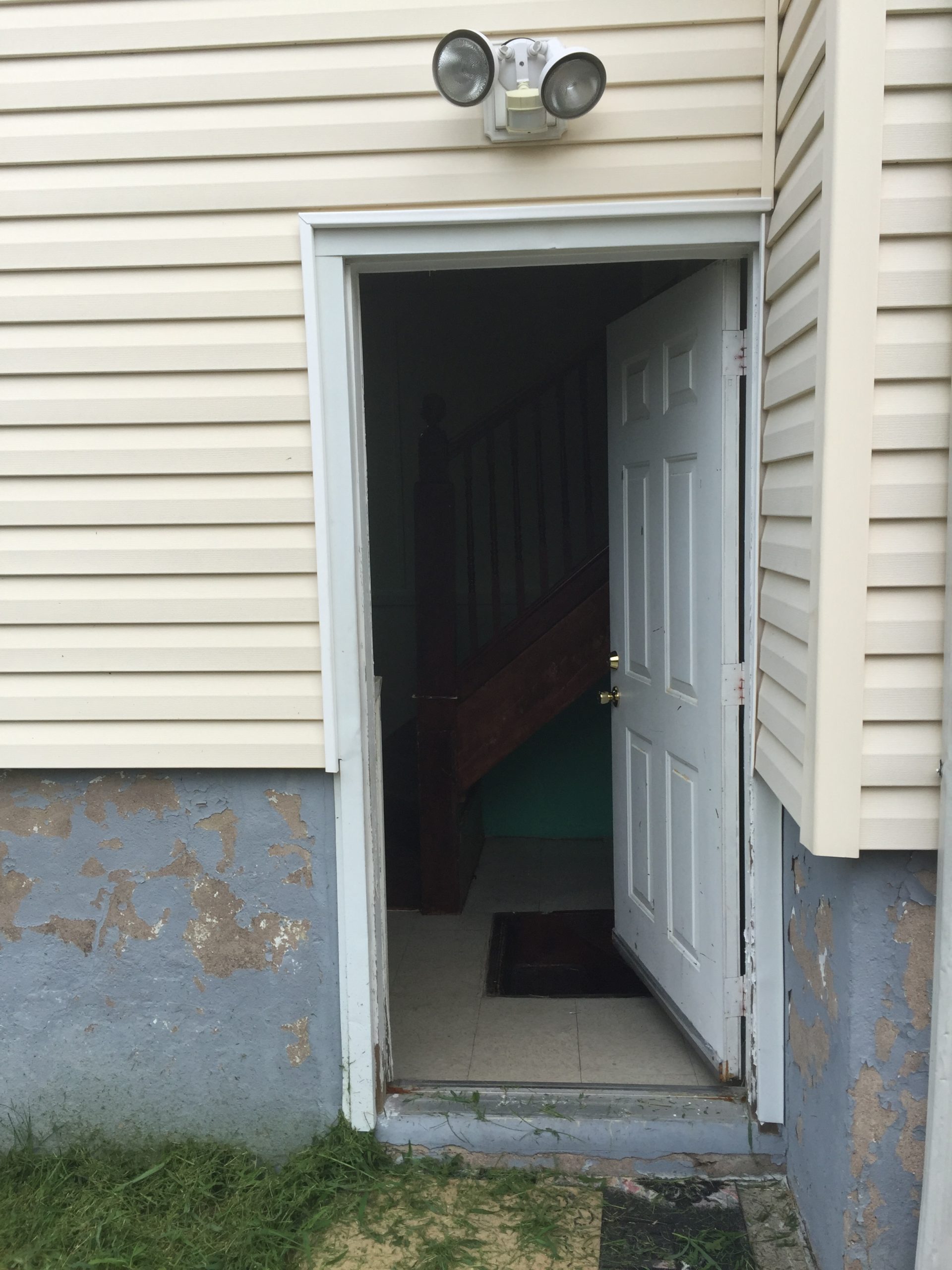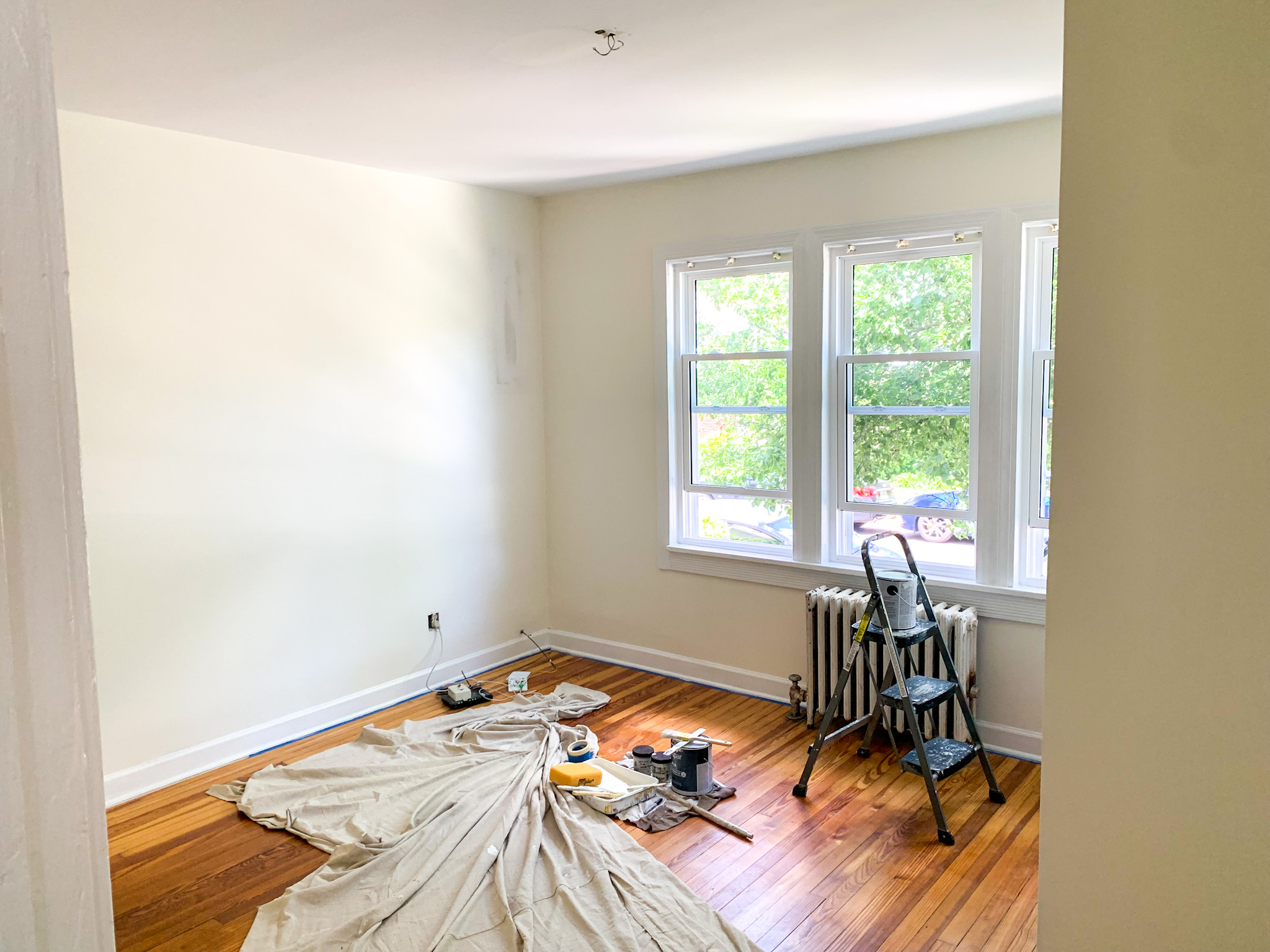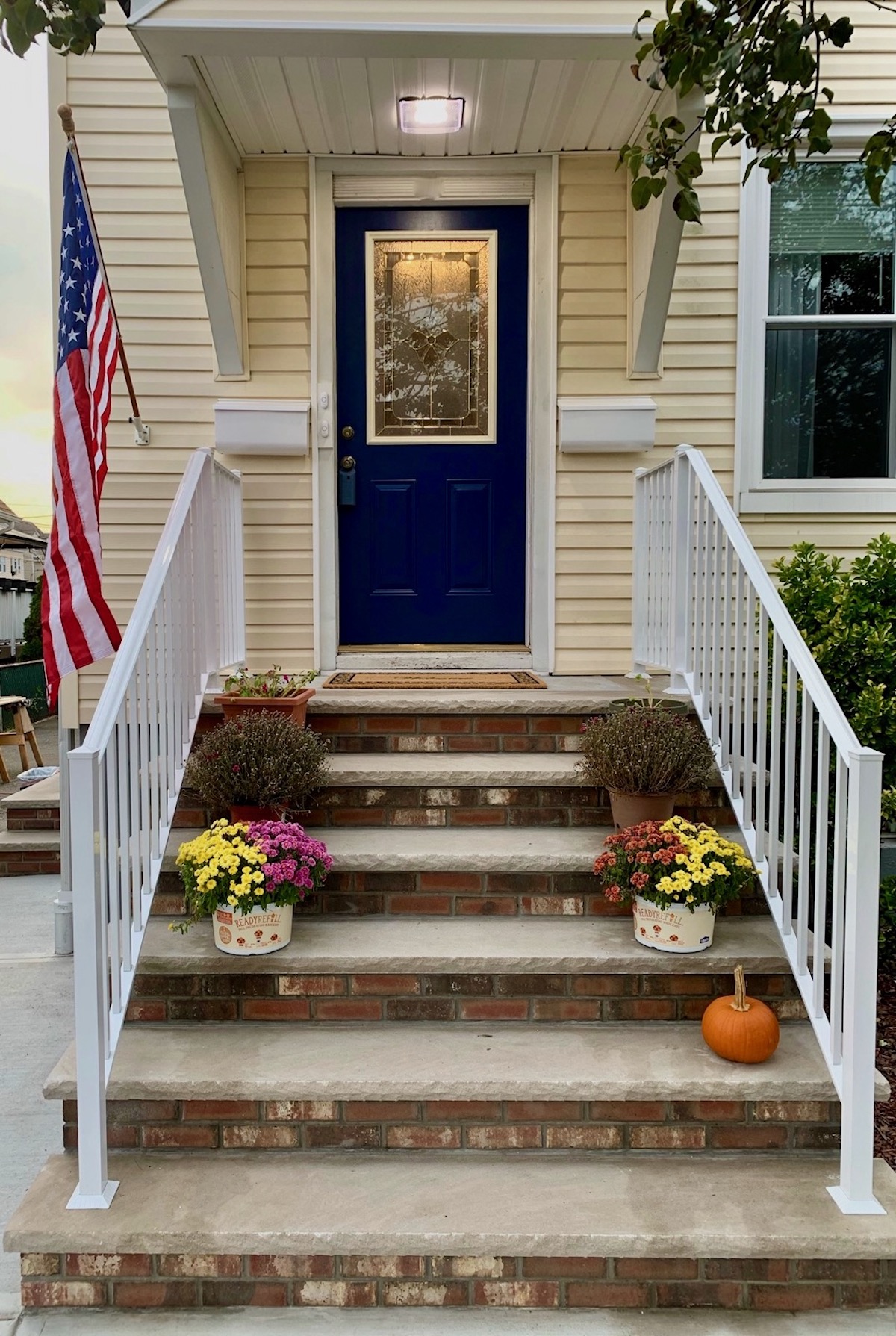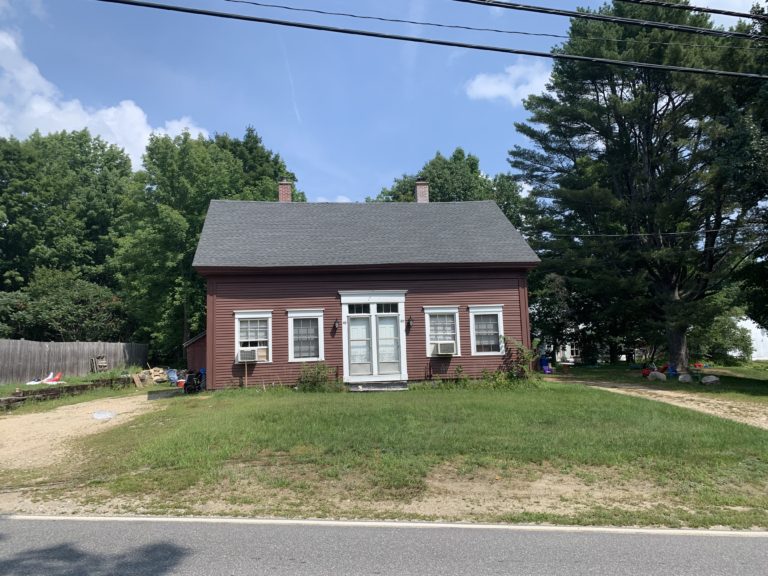How to Budget for Buying a House
This post may contain affiliate links. If you purchase a product through one of them, we will receive a commission at no additional cost to you. As Amazon Associates, we earn from qualifying purchases.
This post is all about how to budget for buying a house.
You’re ready to buckle up, budget and buy a house. You’ve weighed the pros and cons of rent vs. homeownership, you understand the benefits and risks of purchasing real estate, and you (and possibly your S.O.) are ready to dive in.
YES! You’re here! You’ve decided. You’re going to do it.
Let me be among the first to say – YAY YOU. To me, the “deciding” is more important than the “doing.”
For example, I personally believe the hardest part about going to the gym is tying my shoes. Once I tie my shoes – the action proving my decision to work out – the rest is gravy.
Take a second and give yourself a millennial participation trophy because you are ready to jump into your big kid panties and become a homeowner!
What next? And, how much?
Uhhhh…
Great question.
What’s Next??
We faced this query ourselves.
Derek had owned a house once before with his cousin, but it was a deal that included co-ownership and a familial loan. He was not familiar with the “traditional” process of buying a home, which usually includes applying for a mortgage from a bank.
Other than the most important day in your house search, i.e. the day you decide what you want, the bulk of the home buying process (unless you’re so lucky as to acquire your real estate in cash) involves the financial commitment.
The next step after deciding what you want to buy is to settle on a desired price range, as in, your budget for a house.
Before you show up to a mortgage broker’s office with your W2s and say, “What can I afford?” it is a really, really good idea to do your own math.
Sure, a mortgage broker will tell you what he or she thinks you can afford however this is not necessarily what you should be affording.
Maxing out your numbers might sound like fun, and might yield you a Barbie dream house, but that does not necessarily set you up for long term personal finance domination.
A Word of Caution
Remember, most people surrounding the real estate buying process work on commission — meaning they only make money when you buy something. Some very likely have very little care for what is best for your financial situation.
Mortgage brokers and real estate agents don’t get paid until the house is sold – aka closing day.
Briefly consider how a real estate agent’s commission works – it’s a percentage of a sale! So, the more you spend, the more money they make.
Whose bottom line are they looking out for? Yours or theirs? Tread carefully. Do your own math.
Particularly surrounding mortgages, always read the fine print.
Remember 2008? Mortgages had a lot to do with that giant economic collapse. Beware the balloon or variable rate mortgages.
Or just watch The Big Short (Steve Carrell was fantastic in that film, btw) and report back.

The Financial Commitment
This is how to budget for buying a house: we have to explore the finances.
We’ll break this down into 2 main sections:
- The down payment
- The monthly costs
You’ll need some grade school math and a pencil. (And we all thought Mrs. Hopkins was crazy when she said we’d need these things…hi Mrs. Hopkins! Hope you’re still kicking in those crusty white blouses!).
#1. The Down Payment
Here’s where we millennials as a whole have the cards stacked against us.
Many financial analysts generally agree that the down payment is the biggest barrier to millennial homeownership, often blaming student loans.
Yet, our generation pays a considerable amount of money in monthly rent – often comparable to the out-of-pocket costs of a monthly mortgage.
Add all this up, and we are slow to buy homes.
Why?
According to Investopedia, a down payment is “a payment made as part of a large purchase in the early stages of a financing arrangement.”
In other words, it’s a portion of the big purchase. You get to buy something you don’t have the cash for up front.
For example: if you’re the bank and I’m the homebuyer, you ask me for some money now, and I promise to pay the rest of the money on a monthly basis until I don’t owe you anymore.
If I’m buying a $100,000 house, you might ask me for $20,000 now (down payment), and I sign my name to pay the rest of it – $80,000 (mortgage) – over the course of the next 15 or 30 years.
Typically, mortgage loans are either 15 years or 30 years. For the purposes of this article, we will use 30 years for our dicussion.
Traditional down payments
Traditional down payments are 20% of the purchase price. That means if a house is $100,000, we need to budget $20k to buy the house. Houses in NJ at $300,000 are pretty typical.
Pause.
Math time.
(Use your pencil if you need to, it’s okay.)
20% of $300,000 is $60,000.
…How many friends of yours have a cool $60k sitting in the bank in cash?
You probably don’t know because our society doesn’t really talk about money or teach personal finance 101. That’s a hearty, mine-filled discussion for a different day.
For now, let’s say we did talk about money, and we’d quickly learn that the average millennial owes $33k in student loans.
I’m going to articulate something on the hearts and minds of just about everyone I know.
“While digging out of our student loan mess, how are we as a generation possibly supposed to save twice that for a down payment?!” It’s true, I have great admiration for and truly believe in much of what David Bach has to say, but it’s a bigger problem than lattes and avocado toast, amiright?!
Maybe you do have a healthy savings account, and $60k sitting around ready to deploy.
I am here to say GOOD FOR YOU and you may now proceed to “2. The Monthly Costs.”
Non-traditional down payments
If you don’t have that kind of bulk sitting around, fear not. We are going to get you a house. With a little creativity and pinpointed budget, you will buy a house!
Here’s a secret you ought to know:
There are more options than 20% down payments.
YES.
There are mortgages available with 10% down. There are even mortgages with 3.5% down (aka FHA Loan). If you’re a veteran – and thank you for your service, if you are – the VA loan offers 0% down.
My point is, if you don’t happen to have a corporate sponsor or an inheritance from Aunt Petunia to secure your mortgage, there is hope.
I am not a mortgage broker, and this is not financial advice. I am your cheerleader and confidant. The main point I want to make here is this that this is a mental game. This is, “I can’t” vs. “How can I?”
ASK.
Ask a broker about non-traditional loan options. Research the ins and outs of an FHA Loan, a VA loan, a Homepath house, a HUD house, a Homeready loan, etc. etc. etc. Remember, we put on our big kid panties today, and we are going to get this sh*t done.
In our particular home buying journey, we bought our ~$300k house with about $10,000 down via an FHA Loan. We were prepared with more cash than that, but for us it was a better deal to save our cash for repairs. We instead buy our beat-up home with an FHA 203k loan, as detailed in this post.
Why do I tell you about our down payment?
Because $10,000 is a lot easier to save up for than $60,000. If you are employed in America and disciplined with your money, $10,000 is a VERY attainable goal. You may want to fight me for a while, run away, close the tab on Chrome, and then come back.
I will be here to tell you that you can do it.
Are you back? Good. Let’s keep going.
Take a quick spin around the internet and assess your ballpark home needs along with your ballpark budget goal. Calculate possible down payments.
Since you have an understanding of down payments, you can better assess what kind of home you should actually be affording. Which brings us to #2.
#2. The Monthly Costs
In most cases, monthly owning costs can be comparable to monthly rental costs.
If you’ve ever perused a house listing on Zillow or Redfin, you’ll see the “mortgage calculator” on the bottom of the page. It gives you a general idea of what your monthly out-of-pocket expenses will look like. Here’s what comprises that number:
- Mortgage
- Taxes
- Insurance
You might say “Gosh, why doesn’t everyone just budget some to buy a house? It costs the same per month as renting!” I’ll tell you why. See above, “Down Payments.”
The other monthly costs
These “monthly cost” numbers fail to include things like utilities, water, repairs, sewer, trash pickup etc. You might be covering these costs in your monthly rent payment, and now have to itemize them separately.
An unannounced parasite often accompanies mortgages with low down payments. Its name is PMI. PMI stands for Private Mortgage Insurance.
We had to pay it with our FHA loan and loathed every cent of it. Check out this very helpful article from Investopedia that explains the stupidity ins and outs of PMI.
Always read the fine print.
Tread carefully.
Use that #2 Ticonderoga to do your own math.
A Math Example
Let’s return to our $300,000 house example. Let’s say you plan to use 10% down with an FHA Loan. Here’s the math:
$300,000 house – yay! How pretty! Look at the backyard!
-$10,000 down payment – yay me! I/we saved up and we got it!
=$290,000 owed to the bank (ugh… will we ever be out of debt in our lives, ever?)
Stay with me! Now we are going to divide this out to see what we actually will need to budget per month while we buy this house.
Note: I used Investopedia’s mortgage calculator to calculate the mortgage costs, using a healthy 4% interest rate. However, as of 2021 when I am writing this post, interest rates are much lower than that.
| Line Item | Monthly Cost |
|---|---|
| Mortgage (principal + interest), given we put a 3% down payment | $1565 |
| Taxes: New Jersey would run you about $10k/year, the rest of the country let’s say $2k. Let’s be dreamers and use the rest of the country. | $167 |
| Insurance: $1,000/year divided by 12 months | $84 |
| PMI: Let’s call it $200/month for easy math | $200 |
| Utilities: Gas + electric, and let’s say you’re conservative with your use | $125 |
| Water: We pay roughly $160 quarterly, so ($160*4)/12 | $54 |
| HOA: Not applicable in our case | $0 |
| Total Monthly Costs | $2195 |
You can probably adjust some of these numbers based on cost of living in your area.
Remember, we live near NYC with a high cost of living. It is my sincere hope that people who live in Ohio or Kansas spend a lot less per month in energy costs and taxes. (And if you do, please tell me what it’s like!)
Do Your Own Math
I challenge you to do this old school, on paper, like the nuns taught us in 2nd grade.
Sure, millennials apparently like apps on our phones, but hold on, my friends–we didn’t learn our math on an app.
Also, we didn’t learn how to think on an app. Come back to your roots as you learn how to budget for buying a house.
Why? You’ll understand it better if you write it down.
The only exception here is the monthly mortgage cost. Mortgage math involves principal and interest and 30 years vs 15 years etc. etc. etc. For someone just starting out, that number is much, much easier to figure out with a calculator.
Amortization is hard to understand. I personally accept that much like a trip to the Mohegan Sun, the house always wins. Compound interest will be working in the bank’s favor and not yours.
Use a reliable mortgage calculator like this one to get ONLY the mortgage payment (separate from the taxes & insurance) so that you can wrap your head around this monthly cost thing a little easier.
I implore you, grab a piece o’ scrap paper and write out your costs to better understand what’s going on with all these numbers.
The more you understand, the less someone can take advantage of you.
I wholly believe that if people understood their actual housing costs leading up to the mess of 2008, many would never have signed their names to them.
To Conclude…
By this point, you are armed with the information you need to set a budget to buy a home!
Your down payment and monthly costs may either be more approachable or less practical than you originally thought.
This may cause every emotion from frustration (will I ever save up enough?) to pride (gimme my house now because I saved up my pennies, suckers!). Acknowledge these feelings, whatever they are, and carry on.
You know more now than you did before.
Knowledge is power, as the old saying goes – and you are now well versed in how to budget for buying a house.
It’s time – go forth and go house shopping!!
You may also like:
- The Millennial’s Ultimate Guide to Buying a Home
- What to do before Moving in to a New House
- Buying a Foreclosure Home – 10 things to know BEFORE bidding!
